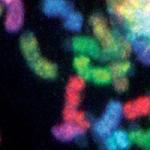
Research Topics
My research group primarily focuses on redox metabolism in cancer
The DNA damage response (DDR) is a signaling network that enables cells to detect and repair genomic damage. Over the past three decades, inhibiting the DDR has proven to be an effective cancer therapeutic strategy. Although cancer drugs targeting the DDR have received approval for treating various cancers, tumor cells often develop resistance to these therapies, in large part due to their ability to undergo energetic metabolic reprogramming 1. Metabolic intermediates influence the ability of tumor cells to sense oxidative stress, leading to impaired redox metabolism that creates redox vulnerabilities (described in detail in our most recent review). The overarching goal of my group is to elucidate the complex interplay between the DDR and redox metabolism. To this end, we employ CRISPR-based high-throughput screens, mouse models of cancer, and other molecular biology tools, to investigate combination therapies that target the DDR, and redox metabolism in tumor cells.
1. Redox Metabolism in Cancer - CRISPR-based screens and DNA damage response
Deficiencies in major DNA repair pathways are harnessed as a canonical approach to sensitize cancer cells to DNA-damaging agents and yield an enhanced response to therapy. This strategy stems primarily from the notion of a synergistic relationship between two essential DNA repair pathways cooperating to mediate cancer cell survival and resistance to therapies. For example, deficiencies in homologous recombination (HR)-mediated DNA repair pathways have been exploited to sensitize breast cancer cells to Poly (ADP-ribose) polymerase 1 (PARP1) inhibitors in vitro and in vivo due to synergy between the HR and PARP-dependent DNA repair pathways. Cancer treatments targeting DNA repair often encounter drug resistance, possibly because alternative metabolic pathways help cells counteract a drug’s most damaging effects. Evidence is mounting that bioenergetic metabolic pathways such as mitochondrial respiration, glycolysis, the nucleotide pool synthesis via the pentose phosphate pathway, and redox homeostasis, significantly influence DNA repair pathways. Conversely, many enzymes involved in DDR can lead to changes in metabolic states. Examples include PARP regulating the NAD+ pool, and histone methyltransferases affecting cellular S-Adenosyl methionine (SAM) levels. However, our knowledge still has significant gaps, and filling them will help elucidate how metabolism controls genomic stability, leading to new strategies for precision medicine.
Utilizing metabolism-centered CRISPR/Cas9 screening, we identified KEAP1 and ATM as targetable vulnerabilities in breast and lung cancers. We showed that KEAP1 is particularly required for invasive breast and lung cancer cells to survive upon ATM kinase inhibition. Our study provides strong evidence supporting the stratification of patients with KEAP1-mutant or NRF2-hyperactivated tumors as likely responders to ATM inhibitors.
2. Mapping DDR and redox metabolism dependency
Our reports reveal that non-small cell lung cancer cells rely heavily on redox metabolism for survival, pointing to the potential promise of harnessing redox vulnerabilities to overcome resistance to DDR inhibitors.
We utilized the DepMap CRISPR database to analyze gene dependency between ~3,000 commonly studied metabolic genes and the expression levels of the most prominent and druggable DDR kinases ATM, ATR, WEE1, and DNA-PKcs. This analysis yielded a list of genes which we named DDR-metabolism dependency factors. Using this focused CRISPR knockout library in cells treated with inhibitors of ATM, ATR, WEE1, and DNA-PKcs, we identified the metabolic determinants of DDR inhibitor resistance. We reported the major redox player Peroxiredoxin 1 (PRDX1), a key enzyme essential for scavenging elevated peroxides via its active-site peroxidative cysteine, as a driver of resistance to ATM inhibitors, both in vitro (Fig. 2B) and in mouse models.
3. Peroxiredoxin 1 (PRDX1) is essential for nucleolar homeostasis
Peroxiredoxin 1 (PRDX1) is a thiol-dependent peroxidase that rapidly scavenges reactive oxygen species to maintain redox balance and signaling. We show that PRDX1 function extends beyond canonical redox sensing to the maintenance of nucleolar integrity. PRDX1 deficiency disrupts nucleolar morphology, impairs Polymerase I-dependent transcription of pre-ribosomal RNAs, and alters rRNA processing and ribosomal assembly. Mechanistically, loss of PRDX1 induces nucleolar activation the DNA repair kinase ATM and promotes recruitment of Nijmegen breakage syndrome 1 (NBS1) to rDNA loci under oxidative stress. NBS1 accumulation parallels repression of rDNA transcription by POL-I, potentially delaying rRNA processing, thereby protecting the nucleolar genome from further oxidative damage. Collectively, these findings identify PRDX1 as a key regulator of nucleolar homeostasis, linking redox control to rDNA stability and ribosome biogenesis.
Biography
Dr. Weyemi was born and raised in Benin, West Africa. He subsequently moved to Paris, France for graduate studies, receiving his master’s and Ph.D. degrees in molecular biology from Paris-Sud University. His thesis research focused on the nexus of oncogenic activation, redox homeostasis, and DNA damage responses in cancer.
He conducted postdoctoral research, first at the NCI under Dr. William M. Bonner, focusing on redox homeostasis and genomic instability in cancer, and then at the Johns Hopkins University School of Medicine in the laboratory of Dr. Solomon H. Snyder where his work unveiled a novel role for the DNA repair histone H2AX in neuronal health and mitochondrial homeostasis.
Dr. Weyemi joined the University of Texas at Austin in 2020 as an assistant professor and a CPRIT scholar in the Department of Molecular Biosciences, where he established an independent research group. He was selected as one of the 16 American Sloan Research Fellows in Neuroscience in 2021 for his research on the role of genomic instability and mitochondrial dysfunction in neurodegeneration. Dr. Weyemi joined the Developmental Therapeutics Branch in 2022 as a Stadtman Investigator.
He serves on the Editorial Board of eLife and Molecular Carcinogenesis.
Honors and Awards
April 2022 NIH Distinguished Scholar
June 2021 2021 Alfred P. Sloan Research Fellow
2019 Cancer Prevention & Research Institute of Texas (CPRIT) Scholar
2019 The American Society for Cell Biology ACT Award (funded by NIH)
2018 The American Society for Cell Biology FRED Award (funded by NSF)
2014 NIH Fellow Award for Research Excellence (FARE 2014)
2013 NIH Fellow Award for Research Excellence (FARE 2013)
2009 French Foundation for Medical Research Award (FRM), France
2006 Department of Research and Education Graduate Studies Award, France
Related Scientific Focus Areas





Molecular Biology and Biochemistry
View additional Principal Investigators in Molecular Biology and Biochemistry
This page was last updated on Thursday, December 4, 2025